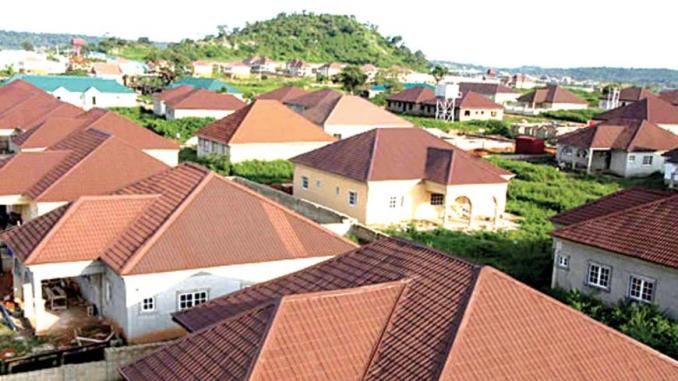Nigeria and 53 other African nations need not less than $3 trillion to resolve housing deficit in the continent. According to the Managing Director and Chief Executive Officer of Shelter Afrique, Mr. Andrew Chimphonda, shortage of housing in Africa is currently projected at 56 million units.
He said if the deficit was quantified in generic terms, at least $3 trillion would be required to close the accommodation gap. Speaking at a webinar forum, a virtual video conference monitored by New Telegraph with the theme: “The Crisis in Perspective: Affordable Housing Post- COVID-19,” Chimphonda, whose organisation has operations in 44 African nations, blamed housing shortfall on high rate of rural urban drift in the continent without commensurate response.
He noted that the rate at which affordable houses were being provided was lower than the rate at which urbanisation is taking place, saying there was a need for commensurate provision of housing to reduce proliferation of slums, even after the coronavirus pandemic.
He said: “Sub-Saharan Africa is experiencing the highest rate of urbanisation without commensurable housing provision. It means that there will be proliferation of slums.” Looking at the provision of affordable housing post-COVID-19, the Shelter Afrique boss said the role of developmental financial institutions (DFIs) could not be the same as normal financial banks, stating that they must take risks and utilise the capital at their disposal to turn private capital into housing. In supporting affordable housing, he stated that DFIs would be looking for attitudinal change among developers and individuals.
“Please, we need to have people that work in those institutions through Shelter Afrique in wanting to make a change, in wanting to bridge the gap. DFIs cannot transfer problems. We look at DFIs to support government in terms of playing the roles of advocacy and capacity building,” he said. Chimphonda explained to the stakeholders that DFIs would be looking at problems that developers have across the continent, adding that in most cases, the institutions would be looking at the challenge they have with the percentage they need to put down in terms of equity capital. According to him, Shelter Afrique is looking at DFIs that can actually go into providing capital through developers in order to capitalise the funding from the commercial banks.
“DFIs are not only set up to address market failure, but in providing innovative financial solutions that can address what we need in the demand and supply sides of housing,” he said.
On his part, founder/Managing Director, Eximia, Hakeem Ogunniran, noted that before COVID-19 outbreak, Nigerian housing sector was already in crisis. During and after coronavirus, he urged stakeholders in the sector to move from rhetorics and do something differently. According to him, some of the things to do to change the narrative must include commoditising of housing by dealing with institutional bottlenecks.
Besides, he said there was a need to create a legal and regulatory framework that will allow buying, selling and transfer of houses the same way other commodities are being sold. He said: “In a situation where it takes years to sell or transfer houses will not help the system. “All the institutional and legal counsel constraints like the Land Use Act, consent clause, must be removed. Everybody must understand that this is business unusual. “It is no longer a case of someone sitting somewhere, dishing out regulations, which will not allow us to move.” Secondly, Ogunniran, a former managing director at UPDC, suggested the need for Nigerian government and other stakeholders to commence manufacturing of houses by infusing technology into the building process. According to him, the conventional system of mortal and brick, which is very slow and also wastes materials, would not deliver mass and affordable housing for the people. He said: “The National Housing Policy has three legs. One spoke clearly about infusing technology into the process of housing delivery. In five years from now, I am not sure if this current government has been able to deliver 10,000 houses.”
Source: newtelegraphng




